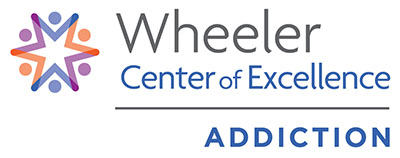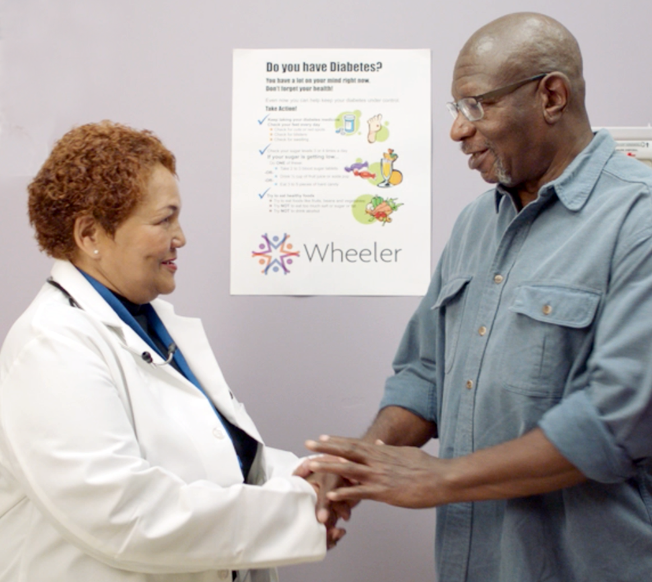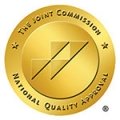A History of Addiction Services at Wheeler
From the early start-up years to the leading edge of addressing today’s opioid crisis, Wheeler’s addiction programs have varied over time, but one thing remains constant. Over the course of Wheeler’s five decades, the disease of addiction is increasingly approached with innovative methodologies at the intersection with other health conditions.

The first program at Wheeler focused on addiction was an “alcoholism court liaison” project in 1973, which diverted individuals to treatment instead of incarceration. Outpatient counseling for drug abuse followed soon thereafter, as did partnerships to place addiction counselors in local hospitals. Over the next several decades, specialized services such as Lifeline, a groundbreaking program designed to meet unique needs of pregnant and parenting women, as well as services for problem gambling, driving while intoxicated, and many other areas were created, each addressing specific, identified needs.
Between 1973 and 2004, Joseph Puzzo, MA, Mdiv. oversaw their growth and development.
“The Community Mental Health Centers Act that supported Wheeler’s early years included addiction as part of the services to be provided, but there often wasn’t funding that accompanied it, so we were always being creative in finding ways to support services,” he says. He established Employee Assistance Programs for local businesses, DWI programs in the Polish-speaking community in New Britain, prevention programs for local school systems, court diversion programs, and more.
 By the 1990s Wheeler was increasingly positioned as a leader in the field. Puzzo says that Wheeler’s willingness to be innovative and creative led to opportunity.
By the 1990s Wheeler was increasingly positioned as a leader in the field. Puzzo says that Wheeler’s willingness to be innovative and creative led to opportunity.
“The constant all along was that we were always active at the state level, always had good relationships, and the state often came to us to create new programs when needs were identified. The creation of the Connecticut Clearinghouse is an excellent example. Because of our reputation, the state knew we could deliver this kind of service well. We had the trained staff, we had the structure, and we could pull all these pieces together.”
As Wheeler grew, so did the needs.
“By the mid-1990s, it was pretty clear that substance use was extremely underreported in the families we served,” says Bill Kania, LMFT, now director of Children’s Outpatient Services. “We saw that earlier than most did. Working with school districts, we offered something different: substance use evaluations right in schools. This allowed for early identification and the ability to rapidly respond with matching adolescents with the appropriate level of substance use treatment within our specialized treatment programs.”

As the treatment field then embraced services provided in the home, Wheeler again was in the lead, as an early implementer of Multisystemic Therapy (MST) in Connecticut, one of the first to utilize Multidimensional Family Therapy (MDFT), serving as a pilot for model developers, focusing on proving outcomes, and committing early to the development of evidence-based practices to treat addiction.
“We had some of the best outcomes,” Kania says. “The state looked to us to come up with innovative solutions, use best practices, and build programs around them. We developed a fantastic continuum of agency-based and community-based services that complemented each other, and still do to this day.”
A similar transformation occurred in the 2000s in addiction services for adults. Nic Scibelli, LCSW, today Wheeler’s Chief Information Officer, began by overseeing adult services.
“Wheeler was quick to jump on the notion that substance use and mental health services were complementary, not regimented into two siloes. The best research in the field told us that evidence-based practices gave the best outcomes,” Scibelli says. “We weren’t just responding to funding opportunities, but responding to what we knew benefited the patients the most.”
Wheeler was also an early adopter of the notion that co-occurring substance use and behavioral health disorders required a unique approach, which blended in best practices, a focus on recovery, and a belief that the goal of treatment was more than just for a single condition, but the need to improve the patient’s overall wellness. Whether working together with the recovery community, or helping similarly innovative state leaders in government like the Court Support Services Division (CSSD) of the Judicial Branch, or the Department of Mental Health and Addiction Services, Wheeler was breaking new ground.
“We were one of the first to work with DMHAS on co-occurring disorders, in both treatment and in training the rest of the field,” Scibelli says, “We understood the respective competencies of mental health and addiction treatment, and how to pull from the best of both. Integrating mental health services into addiction treatment was new and completely innovative.”
Partnering with the model developers and DCF, Wheeler was selected to pilot an adaptation of MST for families in the child welfare system struggling with addiction, overseen by Elisabeth Cannata, PhD, Wheeler’s vice president of Community-Based Family Services and Practice Innovation. Cannata also works closely with the higher education field to ensure the next generation of providers is prepared to work and lead in a treatment environment using evidence-based practices.

At the Connecticut Clearinghouse, dozens of programs in prevention, wellness, and recovery now focus on topics as varied as preventing fetal exposure to alcohol and other substances, training and information dissemination on opioids and overdose prevention, suicide prevention awareness efforts with firearms retailers and owners, and working with tobacco merchants statewide to prevent the sale of tobacco including vaping devices to underage youth. Judith Stonger, MA, CPS, CARC, is Wheeler’s vice president of prevention, wellness and recovery, and is a statewide leader in prevention, advocacy, and training.
“Implementing effective prevention and health promotion strategies is a key element in a public health approach to addressing addiction and other harmful behaviors,” Stonger says. “Our focus not only has to be on individual treatment when problems arise, but also on prevention, early intervention, education, stigma reduction, and awareness. Individuals and communities need to know that prevention works, early intervention is critical, treatment is effective, and recovery is possible.”
Just as Wheeler positioned itself early in advance of widespread acceptance of evidence-based practices, co-occurring disorders, and in-home services, the passage of the Affordable Care Act in 2010 provided an opportunity to incorporate addiction treatment into overall health and wellness, a direction Wheeler had moved in for nearly a decade prior.
Today, addiction treatment is fully integrated with primary care and a full continuum of care at Wheeler’s Family Health & Wellness Centers.
“There’s no ‘wrong door’ to treatment,” says Sabrina Trocchi, PhD, MPA, Wheeler’s chief operating officer. “Regardless if a patient is presenting for substance use, behavioral health, primary care or even dental care, we can identify and address conditions that are affecting their overall wellness. As a community health center, we offer a comprehensive continuum of care, bringing these key service components together in one location.”

Trocchi says an emphasis on patient engagement and outcomes, using peer recovery staff, online support tools like myStrength, Community Health Workers dedicated to addiction issues, and other programming elements, helps sustain long-term recovery for patients, as well as evidence-based care like medication-assisted treatments.
“We are able to engage patients even pre-treatment before they come in the door, and help existing patients with every step of their recovery,” Trocchi says.
Wheeler continues to develop innovative services designed to address developing needs. A recent example is a new recovery facilitation program for the commercially insured, which integrates behavioral health, care management, peer support and more, helping and supporting patients with complex needs as they return to their community following inpatient stays or hospitalizations.
In the future, Trocchi sees only more movement toward further integration of addiction treatment into a broader continuum of health.
“Health care is changing, and there’s an increased need to address all conditions together, not in isolation. That requires moving away from siloed thinking, and instead looking at whole person care. Wheeler is positioned very well to do that, including in areas like telehealth, to reach more individuals who need care.”
Despite the changing nature of the services, the challenges remain. Approximately 2/3 of the patients Wheeler serves have some connection to addiction in themselves or family, not inconsistent with trends nationwide.
While the substances have changed in popularity over time—Kania is especially concerned about vaping today, and kids buying THC online—some elements remain the same. We work hard at engaging adults, adolescents, and caregivers, to form a partnership and establish treatments that support sustainable gains.
“The trick has always been convincing many people that substance use is not harmless or ‘just a phase,’ but it can be effectively treated, and you can become healthier.”





